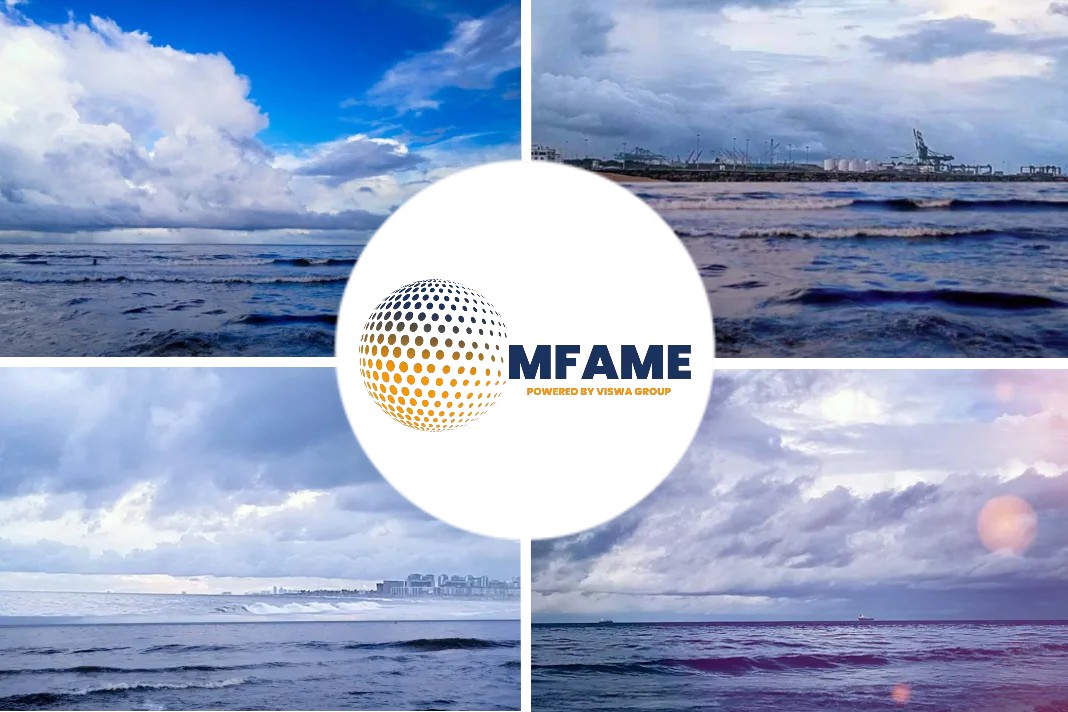Emission of particulate matter from marine engines pose a serious threat to public health. As per the research by Dr. Ralf Zimmermann of the Rostock University, Germany use of fuel oil as the primary source of energy is the reason behind this Problem. However, it can be easily mitigated by installing particle filters in the exhaust gas cleaning system of vessels. Scrubbers that have filters provide the best solution.
Dr. Zimmermann’s research shows that, on their own, both scrubbers and low sulphur fuels are ineffective in reducing this risk. However, the addition of fine particle filters to exhaust gas cleaning system (EGCS) potentially reduces the public health threat. Dr. Zimmermann highlighted this at the Asian Emissions Technology Conference in Singapore, by showing a satellite image of ‘ship tracks’ or bright streaks of cloud forming around the particles emitted in ship exhaust. He explained that, while overall shipping emissions are lower than those coming from road traffic, they are more concentrated and have a greater impact on populations in port cities and those living near heavily-trafficked shipping routes.
Close to 60,000 deaths occur every year due to ship pollution, as shown by the Corbett study in 2007. Citing this study, he asked, “are we doing the right thing [by focusing] on fuel, sulphur content and NOx, to really tackle health effects?”. He went on to question IMO’s approach towards ship emission regulations which lacks on particulate matter emission. Reducing the levels of fine particulates depending on the load conditions is the ideal solution, as one-third of particulate matter in ship emissions was independent of fuel type and vary under load conditions. At lower load conditions (70% and 50%), there were higher concentrations of particulate matter in emissions from engines running on both heavy fuel oils and lower-sulphur refined fuels. Although, shipping industry’s own studies show total emissions holding steady at 2008 levels but a reduction in particulate-related deaths linked to shipping emissions seem unlikely.
“There are fewer pollutants in the lighter fuels, but there are more soot structures,” said Dr. Zimmermann. “The pure soot of [these distillate] fuels actually caused higher cell death than our heavy fuel exposure, which was for us a big surprise. We could not see that the particles from lighter fuels – MGO [and others] – were less harmful than those from heavy fuel oils”, he added. Even small doses of particulate matter from HFOs and MGOs for weeks cause severe biological damage to the human body. Sometimes even leading to death. Further his research showcases the variable biological effects of different types of fuels on health. While there’s a long term cancer risk associated with the HFOs, lighter fuels also has pronounced risk.
“We should not think that we can solve the problem [of public health impacts] by a fuel change. And the question we have to discuss is if [adding scrubbers or changing to low-sulphur fuels] really helps … It’s a big question mark.”
Scrubbers remove 30-70% of particulate but the fine particles that affects human health still remains. “The particles which are relevant for health are not covered well by scrubbers,” Dr. Zimmermann said. “And we have the MGO emissions that have a high set of toxicities, so they have acute effects on the cells.” Further, he adds, “It’s not harmless just to move away from heavy fuel oil. Also with lighter fuels, we have a class one human carcinogen that we are emitting in quite high amounts.”
Thus low sulphur fuels or scrubbers are insufficient to mitigate the public health threat. According to Dr. Zimmermann, legislating against particulate matter is the only way out as we are fighting against particle numbers or particle mass of fine particles.
“I believe that exhaust gas treatment systems including filtering is the only option close to the coasts to mitigate these problems. And, I think, in that way, scrubbing is very important because only after scrubbing will you be able to do filtration, otherwise your filters will block far too early”, he said.
Focussing on the health effects of particulate matter in the two most-discussed compliance options for IMO’s 2020 sulphur cap. However, Dr Zimmermann didn’t delve into the climatic impacts linked with the continued use of petroleum in shipping. His research didn’t discuss the impact of alternative fuels like LNG which is essential to eliminate particulate emission as it reduces emission by 90%.
Did you subscribe for our daily newsletter?
It’s Free! Click here to Subscribe!
Source: Marine Propulsion & Auxiliary Machinery

















